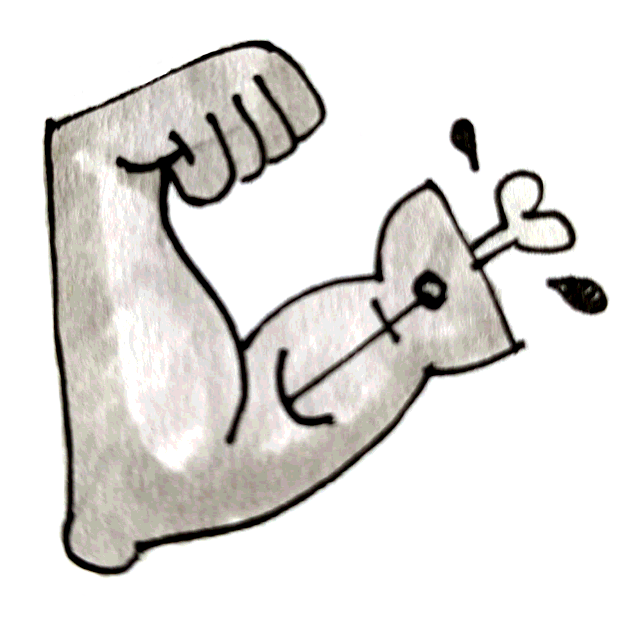This is not just about tickling in the sense of physically grabbing another person and using your fingers to ... well... tickle their sides, feet, under-arms etc. I want to talk about tickling in a slightly wide sense. Maybe more like the kind of thing we mean when we say "tickle the taste buds".
Let me explain.
Evolution has given us many things, instincts, abilities, and urges which all fulfil some evolutionary purpose. For example, we have the urge to eat and drink because if we don't do those things our bodies can't survive. We have the urge for sex because without procreation the species would die out. Both these things are essential to us and so we have evolved the urge to do them and we ourselves have evolved to find them pleasurable.
But that's not where the story ends, because we don't just do those things only because we need to, do we? As intelligent beings we have noticed the pleasure that we get from doing those things and we have sought more of it, we've sought to heighten it, and we've sought to use our knowledge of that pleasure to affect people around us (usually to persuade them to buy things).
This activity goes beyond natural evolutional necessity and into something else. The urge is still there with its accompanying pleasure, but now it has become meshed with other things, societal things, economic things. When you look at the history of humanity and our relationship with things like food or sex, it's easy to see how far we often are from that basic necessity. It's not necessarily a good or a bad thing, but I think it says something about human beings that we have done this.
Anyway, this is what I mean by tickling. We have learned to "tickle" those urges in numerous different ways for our own pleasure and as a way of affecting others.
How does relate to comedy, or actual tickling? Well, if you think about why we laugh and were to agree that it's a release mechanism for pent up adrenaline, then you could see that this reaction is quite similar to the urges I've talked about above. A certain kind of stimulus creates a certain kind of response and that response is one we find pleasurable.
Therefore assuming that as intelligent beings we may want to "tickle" that response it makes sense that we looked to find ways to stimulate it and one of those is of course physical tickling.
The touching of another person, the invasion of their personal space, the vigorous nature of movement might normally be construed as some kind of attack, and yet at the same time because of our relationship with the person doing it, we know we are safe. This is the very definition of a benign violation and therefore unsurprisingly we laugh.
BTW: The fact that the physical effect of our laughter renders us incapable of fending off more tickling is surely just a bonus, a wonderful discovery, a delicious feedback loop that means doing the thing allows more of the thing to be done.
The point here, is not that humour arose from tickling, but that physical tickling was maybe one way (the first way?) that we found to "tickle" our propensity to laugh. The mechanism that we evolved to deal with mistakenly deployed adrenaline become something we could stimulate for the pure pleasure of it. So we did, because, why wouldn't we?
So if you take the premise of why we laugh and you add this idea of tickling what I think you come to an explanation for a lot of what we call humour. I also think the multiple ways we have found to "tickle" ourselves into laughter – the stuff we call comedy – tell us interesting things about what makes us feel violated, and therefore what we find dangerous.
The fact that some of those things are incredibly subtle means that it is sometimes extremely difficult to find the danger lurking inside. The fact that we have also learned to "tickle" ourselves in multiple ways at once, means it can be all but impossible to unpick, or deconstruct the real reasons why something is funny.
However, I think the attempt will be fun and interesting so that is what I'll do.
Next read Many things at once.
<- Back
